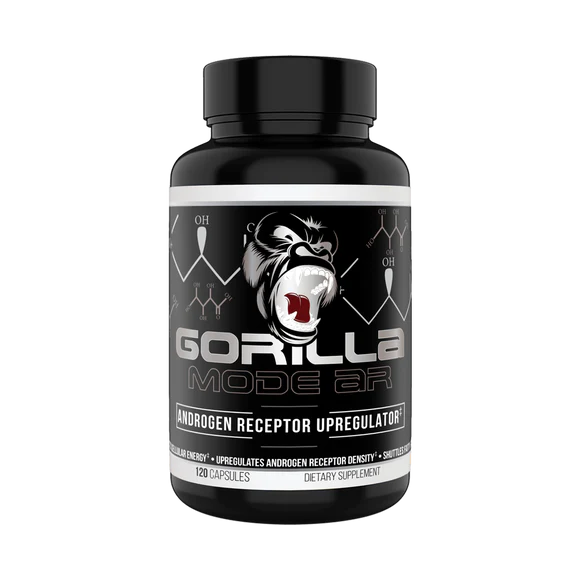When it comes to enhancing our health and achieving our fitness goals, there are numerous supplements available in the market. Two popular choices among fitness enthusiasts and health-conscious individuals are Acetyl L-Carnitine vs L-Carnitine Tartrate. Both supplements are derived from the amino acid L-Carnitine but have distinct characteristics and benefits.

Understanding the Benefits of Acetyl L-Carnitine
Acetyl L-Carnitine, commonly known as ALCAR, is a naturally occurring compound found in the human body. It plays a crucial role in energy production and metabolism. ALCAR is known for its ability to cross the blood-brain barrier, which allows it to support brain function and cognitive health.
One of the key benefits of Acetyl L-Carnitine is its potential to improve mental focus and memory. Research suggests that ALCAR may enhance neurotransmitter activity and promote the formation of new brain cells, leading to improved cognitive performance.
Moreover, Acetyl L-Carnitine has been studied for its potential to alleviate symptoms of depression and age-related cognitive decline. It is believed to boost the production of neurotransmitters such as serotonin and dopamine, which are crucial for mood regulation. (1)
Exploring the Benefits of L-Carnitine Tartrate
L-Carnitine Tartrate, on the other hand, is primarily known for its role in supporting physical performance and recovery. This form of L-Carnitine is widely used by athletes and bodybuilders due to its ability to enhance energy production and fat metabolism.
One of the key benefits of L-Carnitine Tartrate is its potential to aid in weight loss and fat burning. It works by facilitating the transport of fatty acids into the mitochondria, where they are converted into energy. This process can help individuals who are looking to shed excess body fat and improve their body composition.
Additionally, L-Carnitine Tartrate has been shown to reduce muscle damage and improve post-exercise recovery. It may help reduce exercise-induced muscle soreness and promote the repair and regeneration of muscle tissue. This can be especially beneficial for individuals who engage in intense workouts or endurance activities. (2)
Acetyl L-Carnitine vs L-Carnitine Tartrate
While both Acetyl L-Carnitine vs L-Carnitine Tartrate offer unique benefits, they also share some similarities. Both supplements support energy production and can enhance physical and mental performance.
However, it is important to note that Acetyl L-Carnitine’s primary focus is on cognitive health and brain function, whereas L-Carnitine Tartrate primarily targets physical performance and weight management. Therefore, the choice between the two should be based on individual goals and specific needs. (3)
The Role in Weight Loss
Weight loss is a common goal for many individuals, and both Acetyl L-Carnitine and L-Carnitine Tartrate can potentially aid in this process. Acetyl L-Carnitine may support weight loss by enhancing metabolism and promoting fat utilization as a source of energy.
On the other hand, L-Carnitine Tartrate can facilitate weight loss by increasing the transportation of fatty acids into the mitochondria, where they are burned for energy. This can help individuals achieve a calorie deficit and promote fat loss.
It is worth noting that while both supplements can be beneficial for weight loss, they are not magic pills. A balanced diet, regular exercise, and a healthy lifestyle are essential for sustainable weight management. (4)
Safe Usage and Dosage Guidelines
When it comes to any supplement, it is crucial to follow safe usage and dosage guidelines. Acetyl L-Carnitine and L-Carnitine Tartrate are generally considered safe for most individuals when taken as directed.
For Acetyl L-Carnitine, the recommended dosage ranges from 500 to 2000 mg per day, depending on individual needs and goals. It is usually taken in divided doses throughout the day.
L-Carnitine Tartrate is commonly taken in doses ranging from 1000 to 4000 mg per day. It is often recommended to be consumed before workouts or physical activity to maximize its benefits.
As with any supplement, it is advisable to consult with a healthcare professional before starting Acetyl L-Carnitine or L-Carnitine Tartrate, especially if you have any underlying medical conditions or are taking other medications.
Bodybuilding and Athletic Performance
Bodybuilders and athletes are constantly seeking ways to optimize their performance and achieve their fitness goals. Both Acetyl L-Carnitine and L-Carnitine Tartrate have gained popularity in the fitness community due to their potential benefits.
Acetyl L-Carnitine may aid in muscle recovery and reduce exercise-induced muscle damage. It can support energy production and enhance endurance, allowing individuals to train harder and longer.
L-Carnitine Tartrate, on the other hand, has shown promising results in improving exercise performance and reducing fatigue. It can enhance fat metabolism, which is crucial for endurance athletes who rely on fat as a source of energy during prolonged exercise. (5)
Which is Right for You?
Choosing between Acetyl L-Carnitine and L-Carnitine Tartrate depends on your specific goals and needs. If you are primarily focused on cognitive health, memory enhancement, or combating age-related cognitive decline, Acetyl L-Carnitine may be the better choice for you.
On the other hand, if you are looking to improve physical performance, enhance fat metabolism, or aid in weight loss, L-Carnitine Tartrate may be more suitable.
It is important to note that both supplements can be taken together if desired, as they offer complementary benefits. However, it is always recommended to start with one supplement at a time and assess its effects before adding another.
Potential Side Effects
While Acetyl L-Carnitine and L-Carnitine Tartrate are generally safe for most individuals, some potential side effects may occur.
Common side effects of Acetyl L-Carnitine include gastrointestinal discomfort, nausea, and restlessness. It is important to start with a low dosage and gradually increase it to assess individual tolerance.
L-Carnitine Tartrate may cause mild gastrointestinal issues such as nausea, diarrhea, or stomach cramps in some individuals. Starting with a lower dosage and gradually increasing it can help minimize these side effects.
If you experience any severe or persistent side effects, it is recommended to discontinue use and consult with a healthcare professional.
Obesity Epidemic
The prevalence of obesity has reached epidemic proportions, with over 20% of the global population affected. It is projected that by 2030, one billion people will be classified as obese. Obesity is associated with a myriad of complications, including type 2 diabetes, dyslipidemia, hypertension, and cardiovascular diseases. To combat this growing health concern, various approaches to obesity management have been explored, including lifestyle modifications and pharmacological interventions.
One potential intervention that has gained attention is the use of Acetyl L-Carnitine (ALC) or L-Carnitine Tartrate. ALC is a compound that plays a crucial role in lipid metabolism by facilitating the transport of long-chain fatty acids to the mitochondria for beta-oxidation. Additionally, ALC has been reported to improve insulin resistance and potentially decrease appetite and food intake through its effects on the hypothalamus. (6)
Clinical studies investigating the effects of ALC supplementation on obesity-related indices have yielded mixed results. Some studies have reported weight-reducing effects, while others have shown no significant impact. A previous meta-analysis conducted by Pooyandjoo et al. included six studies and demonstrated that ALC supplementation significantly decreased body weight and BMI compared to controls. However, this analysis may be considered insufficient due to the limited number of studies included.
To address these limitations and provide a more comprehensive understanding of the efficacy of ALC, we performed a systematic review and meta-analysis of 35 articles that had not been previously considered. Additionally, a dose-response analysis was conducted to explore potential non-linear associations between ALC dose and obesity-related indices. The findings of this study aim to provide clearer evidence regarding the therapeutic potential of ALC in the management of obesity.
Methods
Our meta-analysis followed the recommended guidelines outlined in the Preferred Reporting Items for Systematic Reviews and Meta-Analyses (PRISMA). The PICOS model was applied to define the study’s criteria: Population (adult subjects), Intervention (ALC supplementation), Comparison (matched control group), and outcomes (weight, BMI, waist circumference, body fat percentage, and body fat mass). Randomized controlled trials (RCTs) that reported these outcomes were included in the analysis. (7)
The search strategy involved an electronic search of online literature databases, including Medline (PubMed), Scopus, and Google Scholar, up until November 2018. After initial screening, 6607 unduplicated studies were considered for further evaluation. Unrelated papers were eliminated based on title and abstract analysis, resulting in the exclusion of 6535 studies. After a full-text review, an additional 29 studies were excluded. The final analysis included a total of seven eligible RCTs.
Results
The pooled data from the seven included studies demonstrated that ALC supplementation resulted in significant improvements in muscle soreness (MS) at multiple follow-up time points (0, 24, 48, 72, and 96 hours) compared to placebo. Additionally, ALC significantly reduced levels of creatine kinase (CK), myoglobin (Mb), and lactate dehydrogenase (LDH) at the 24-hour follow-up period. However, no significant effects were observed beyond this time frame. These results suggest that ALC supplementation can effectively alleviate delayed-onset muscle soreness (DOMS) and reduce markers of muscle damage.
In terms of weight-related outcomes, ALC supplementation showed significant effects on weight, BMI, waist circumference (WC), and fat mass. However, no significant impact was observed on body fat percentage. These findings indicate that ALC has the potential to be used therapeutically for weight management in obese and overweight adults.
Discussion
The results of this meta-analysis support the notion that ALC supplementation can lead to improvements in weight-related outcomes and muscle soreness. The mechanisms underlying these effects may be attributed to ALC’s role in lipid metabolism and its potential impact on insulin resistance and appetite regulation. However, it is important to note that the observed effects were primarily seen in resistance training groups and untrained populations. Further research is needed to explore the effects of ALC supplementation in different populations and in response to different types of mechanical or chemical damage.
It is worth mentioning that the dose-response analysis conducted in this study did not reveal any significant non-linear associations between ALC dose and obesity-related indices. This suggests that the efficacy of ALC supplementation may not be strongly influenced by the dosage administered.
Overall, the findings of this comprehensive meta-analysis support the potential therapeutic use of ALC in the management of obesity. However, further research is warranted to elucidate the optimal dosage, long-term effects, and potential side effects of ALC supplementation. A pivotal phase III trial is needed to validate these findings and provide more precise recommendations for its therapeutic use.
Supplementation
In conclusion, this systematic review and meta-analysis provide substantial evidence supporting the efficacy of ALC supplementation in improving weight-related outcomes and alleviating muscle soreness. The findings suggest that ALC has the potential to be used as a therapeutic compound in the management of obesity. However, further research is required to fully understand the optimal dosage, long-term effects, and potential side effects of ALC supplementation. These findings contribute to the growing body of literature on complementary therapies for weight loss and provide health workers with more precise recommendations for the therapeutic use of ALC.
L-Carnitine Tartrate Supplement
L-Carnitine Tartrate is a supplement that has gained significant attention in recent years due to its potential benefits in improving exercise performance and promoting weight loss. Numerous clinical trials have been conducted to investigate the effects of L-Carnitine Tartrate on various aspects of health, including muscle damage, obesity, and metabolic disorders. In this comprehensive review, we will delve into the findings of these clinical trials to provide a deeper understanding of the effects of L-Carnitine Tartrate supplementation.
I. L-Carnitine Tartrate and Exercise-Induced Muscle Damage
Exercise-induced muscle damage is a common occurrence among athletes and individuals engaging in intense physical activities. Previous studies have suggested that L-Carnitine Tartrate supplementation may have a positive impact on muscle damage and recovery. To investigate this further, a meta-analysis was conducted, which included seven eligible randomized controlled trials (RCTs). (8)
The pooled data from these studies indicated that L-Carnitine Tartrate supplementation resulted in significant improvements in muscle soreness at various follow-up time points (0, 24, 48, 72, and 96 hours) compared to placebo. Additionally, L-Carnitine Tartrate was found to significantly reduce levels of creatine kinase (CK), myoglobin (Mb), and lactate dehydrogenase (LDH) at the 24-hour mark. However, no significant effects were observed beyond this time period.
These findings suggest that L-Carnitine Tartrate supplementation can improve delayed-onset muscle soreness (DOMS) and markers of muscle damage, particularly within the first 24 hours post-exercise. Further research is needed to explore the effects of L-Carnitine Tartrate on DOMS after different types of mechanical or chemical damages.
II. The Role of L-Carnitine Tartrate in Obesity Management
Obesity is a global pandemic with significant health implications. Various approaches, including lifestyle modifications and pharmacological interventions, have been utilized for obesity management. L-Carnitine Tartrate has emerged as a potential intervention due to its role in lipid metabolism and its reported effects on weight reduction, insulin resistance, and appetite control. (9)
Several clinical studies have investigated the effects of L-Carnitine Tartrate supplementation on obesity-related indexes, such as body weight, body mass index (BMI), waist circumference (WC), body fat percentage, and body fat mass. A meta-analysis conducted by Pooyandjoo et al. included six studies and demonstrated significant reductions in body weight and BMI with L-Carnitine Tartrate supplementation compared to controls. However, this analysis was limited in terms of the number of studies included.
To address the limitations of previous meta-analyses, a comprehensive and updated meta-analysis was performed, including data from 35 articles that were not previously considered. The findings of this analysis support the potential therapeutic use of L-Carnitine Tartrate in obesity management. Significant effects were observed on weight, BMI, WC, and fat mass, indicating that L-Carnitine Tartrate supplementation can contribute to weight loss in obese and overweight adults.
It is important to note that the effects of L-Carnitine Tartrate on body fat percentage were not significant in the meta-analysis. Further studies are needed to explore the mechanisms underlying these effects and to determine the optimal dosage and duration of L-Carnitine Tartrate supplementation for obesity management.
III. L-Carnitine Tartrate Dosage and Dose-Response Relationship
The optimal dosage of L-Carnitine Tartrate for achieving desired effects is an important consideration. The meta-analysis conducted by Pooyandjoo et al. included studies with varying doses of L-Carnitine Tartrate, and significant effects on weight reduction were observed.
In a subsequent analysis, a dose-response relationship was investigated to explore possible non-linear associations between L-Carnitine Tartrate dose and obesity-related indices. The results of this analysis suggested that higher doses of L-Carnitine Tartrate may have greater effects on weight reduction, BMI, and WC. However, further research is needed to confirm these findings and determine the optimal dosage for different populations.
IV. Mechanisms of Action of L-Carnitine Tartrate in Obesity Management
The potential mechanisms underlying the effects of L-Carnitine Tartrate on weight reduction and metabolic parameters have been the subject of investigation. L-Carnitine Tartrate plays a fundamental role in lipid metabolism by transporting long-chain fatty acids to the mitochondria, where beta-oxidation enzymes are located.
In addition to its role in lipid metabolism, L-Carnitine Tartrate has been reported to improve insulin resistance and decrease appetite and food intake through a direct effect on the hypothalamus. These findings suggest that L-Carnitine Tartrate may exert its effects on weight reduction through multiple mechanisms.
V. Safety and Side Effects of L-Carnitine Tartrate Supplementation
The safety profile of L-Carnitine Tartrate supplementation is an important consideration, particularly in long-term use. The meta-analyses conducted by Pooyandjoo et al. and the comprehensive analysis by the present study did not report any significant adverse effects associated with L-Carnitine Tartrate supplementation.
However, it is worth noting that individual variations in response to L-Carnitine Tartrate supplementation may occur. It is recommended to consult with a healthcare professional before initiating L-Carnitine Tartrate supplementation, especially for individuals with pre-existing medical conditions or those taking medications.
VI. Future Directions and Areas of Research
While the clinical trials and meta-analyses reviewed in this article provide valuable insights into the effects of L-Carnitine Tartrate, there are still several areas that require further exploration. Future research should aim to investigate the effects of L-Carnitine Tartrate on different populations, including individuals with specific medical conditions or those engaged in different types of physical activities.
Moreover, long-term studies are needed to assess the sustained effects of L-Carnitine Tartrate supplementation on weight maintenance and metabolic parameters. Additionally, more research is needed to elucidate the mechanisms underlying the effects of L-Carnitine Tartrate on weight reduction, muscle damage, and other aspects of health.
VII. Muscle Damage and Obesity
In conclusion, the findings of clinical trials and meta-analyses suggest that L-Carnitine Tartrate supplementation can have beneficial effects on exercise-induced muscle damage and obesity-related parameters. It has been shown to improve muscle soreness and markers of muscle damage, particularly within the first 24 hours post-exercise.
Furthermore, L-Carnitine Tartrate supplementation has demonstrated significant effects on weight reduction, BMI, WC, and fat mass in obese and overweight individuals. However, further research is needed to determine the optimal dosage, long-term effects, and mechanisms of action of L-Carnitine Tartrate.
Considering the safety profile of L-Carnitine Tartrate supplementation, it can be considered as a potential therapeutic compound for improving exercise performance and managing obesity. However, it is important to consult with a healthcare professional before initiating supplementation to ensure individual suitability and safety.
Conclusion: Making an Informed Decision for Your Health and Fitness Goals
In conclusion, both Acetyl L-Carnitine and L-Carnitine Tartrate offer unique benefits and uses. Acetyl L-Carnitine is primarily focused on cognitive health and brain function, while L-Carnitine Tartrate targets physical performance and weight management.
When considering which supplement to choose, it is important to align your goals and needs with the specific benefits each supplement offers. Additionally, consulting with a healthcare professional can provide valuable guidance in making an informed decision.
Remember, supplements are not a substitute for a healthy lifestyle. They should be used in conjunction with a balanced diet, regular exercise, and adequate rest to maximize their potential benefits.




